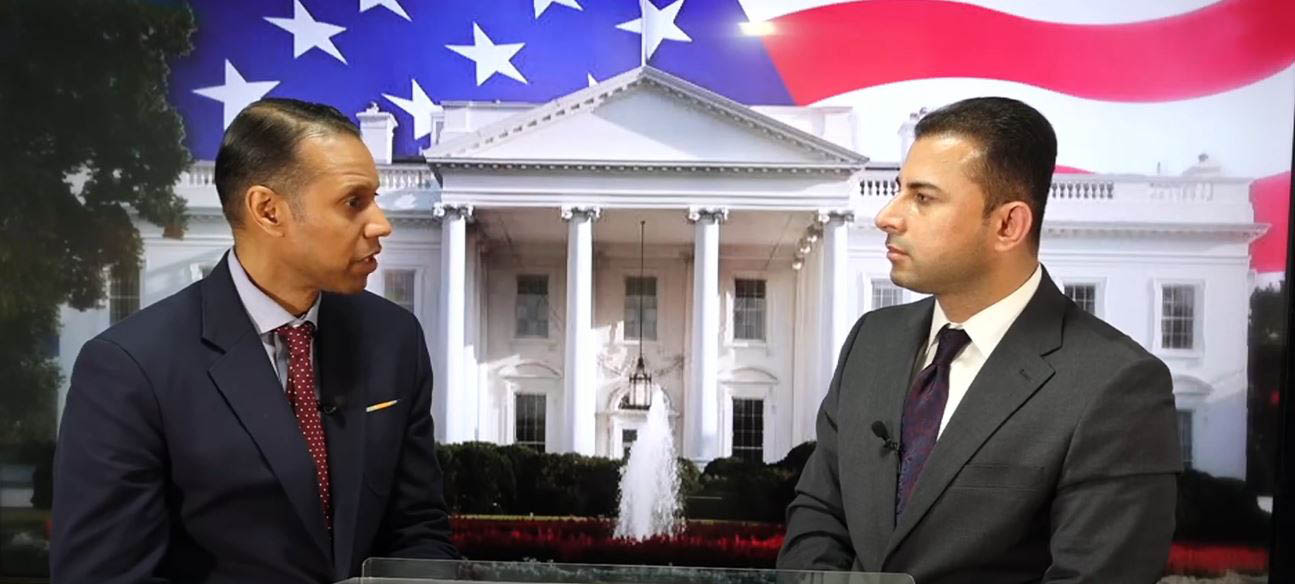Syria Opens Economic Chapter as Trump Lifts Sanctions
Col. Myles B. Caggins III also noted the extensive American involvement in Syria, including $200 million annually since 2014 to support the Syrian Democratic Forces (SDF) in counter-ISIS operations and manage detention centers.

By Ahora Qadi
ERBIL (Kurdistan24) – In a move hailed as “historic and bold,” the US President Donald Trump announced the lifting of sanctions on Syria, a decision expected to unlock foreign investment and catalyze regional stability, particularly in post-war Syrian territories.
Speaking to Kurdistan24 in Washington, Col. Myles B. Caggins III, former US military spokesperson during the coalition campaign against ISIS in Syria and now representing the Association of the Petroleum Industry of Kurdistan (APICUR), underscored the broader significance of the decision.
“President Trump’s Middle East trip is generating many economic agreements, and the lifting of sanctions opens a real door for Syria to re-enter the international economy,” Caggins said.
He highlighted the suffering inflicted by sanctions over the past decade, pointing to deep-rooted poverty from Idlib to Hasakah, Deir ez-Zor, and beyond. “The sanctions excluded Syria from global markets and directly impacted families across the country,” he added.
Caggins also noted the extensive American involvement in Syria, including $200 million annually since 2014 to support the Syrian Democratic Forces (SDF) in counter-ISIS operations and manage detention centers. Humanitarian aid exceeding $14 billion has been provided to non-regime areas across northeast Syria.
With sanctions lifted, Caggins said the conditions are becoming favorable for American investors, especially in oil infrastructure. “There’s potential to improve Syrian oil production with foreign investment. The time is ripe for US companies to consider opportunities in Syria.”
He emphasized that while APICUR focuses on the Kurdistan Region, the economic opening in Syria is being closely monitored by global energy stakeholders.

Riyadh Summit Signals New Era
According to the White House, President Trump used the high-level meeting in Riyadh to urge President al-Sharaa to take bold steps toward regional normalization. He called on Syria to join the Abraham Accords, expel foreign terrorist elements, and assume full responsibility for ISIS detainees. The Abraham Accords, originally brokered by Trump, have already led to normalization between Israel and several Arab states.
In response, President al-Sharaa welcomed the lifting of sanctions and praised the initiative as a catalyst for national recovery. He reaffirmed Syria’s commitment to the 1974 disengagement agreement with Israel and expressed support for counterterrorism efforts and the removal of chemical weapons.
“Syria is ready to become a hub connecting East and West,” al-Sharaa stated, inviting American firms to invest in the country’s oil and gas sector. He also acknowledged the recent withdrawal of Iranian forces as an opening for political and economic stability.
A New Geopolitical Landscape
The Riyadh meeting marks the highest level of engagement between Washington and Damascus in over two decades. It comes amid broader regional recalibrations and growing concern about the ripple effects of global conflicts, including the war in Gaza and the Russian invasion of Ukraine.
Syria Opens Economic Chapter as Trump Lifts Sanctions
— Kurdistan 24 English (@K24English) May 15, 2025
Col. Myles B. Caggins III also noted the extensive American involvement in Syria, including $200 million annually since 2014 to support the Syrian Democratic Forces (SDF) in counter-ISIS operations and manage detention… pic.twitter.com/1jD7wwytr8